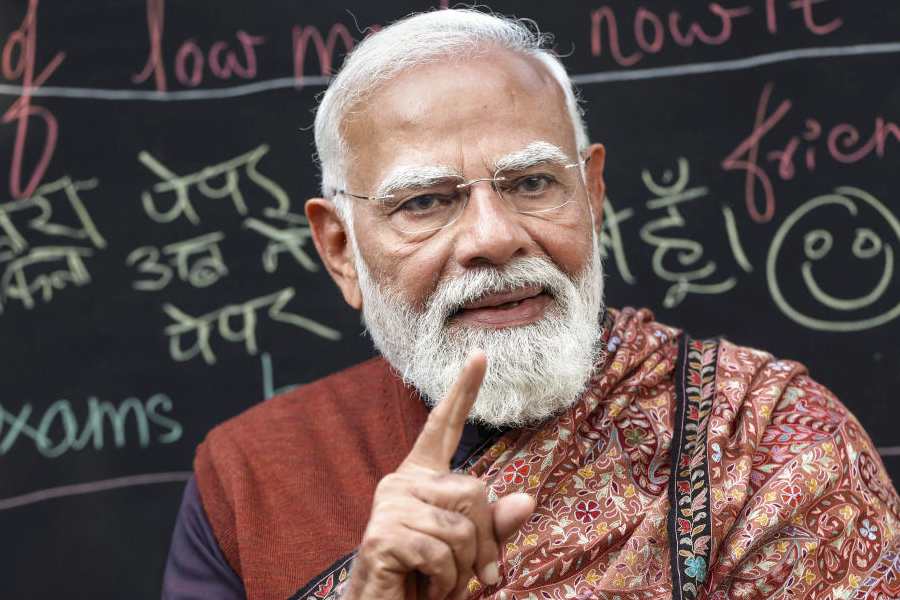Lord Ayyappa, the deity of the Sabarimala temple, “is very popular with the third sex”, asserts Viraj Shah in her book, Meaning and Myths of Icons. Ayyappa, who is believed to protect the cosmos from evil, is also known to be worshipped as Hariharaputra — the son of Vishnu (Hari) in his female form, Mohini, and Shiva (Hara). Shah writes that Ayyappa is mentioned in the Vedas (1750-500 BCE) and, according to mythology, was born out of the union of two of the most well-known Hindu gods.
It is Ayyappa’s parentage that makes him popular with the third sex. Pradip Baksi, a Calcutta-based scholar, rightly states, “The transgender and male homosexual people of Kerala, Karnataka, Tamil Nadu, Telangana and Andhra Pradesh are devoted to Lord Ayyappa. This may be a pointer to the gender-identity of the lord among a section of the faithful. That Ayyappa is considered to have arisen out of male homosexual union is itself an interesting aspect of our ancient and medieval sexual culture.”
Shiva as Ardhanarishwara, an amalgamation of the masculine and feminine forms, is the presiding deity of the third-eye, associated with spiritual awakening. This is where gender is transcended to reach a perfect balance between the male and the female. Tales of gods and mortals changing gender abound Hindu mythology, at times the gods even engage in sexual activity in their reincarnated genders. Transgender people commonly identify with and worship the various Hindu deities who embody gender diversity like Ardhanarishwara.
Equal halves
The author, Shahindran Moonieya, in a piece in the Mail & Guardian, rightly points out that Hinduism — this must not be confused with Hindutva, which is a diabolical distortion of the Hindu dharma — often considers each person as being in search of either the female or the male half, for integration and transcendence. There is ample evidence of this if one takes into account the transgender presence in the Mahabharata — Shikhandi (born as the female, Shikhandini) was pivotal in the great war of Kurukshetra and the warrior Aravan, who, knowing full well that he would die in battle, wished to be married and was united in matrimony when Krishna, once again, assumed his female form, Mohini.
Moonieya also emphasizes that Hinduism is a “synthesis of a large tapestry of philosophies and belief systems”, bound together by common threads and a very large body of extant works, which evolved over a period of 10,000 years. Gender and sexuality, he points out, are mutable. “Morality and purity are informed by many factors and are not grounded in dogma. The goal of every Hindu is to conclude the journey to the divine self, the Atman, which is without gender yet embodies male and female as well as a third ‘other’.”
It is important to not allow dogmas to preside over plurality, a fundamental tenet of Hinduism. Propagators of Hindutva try to demolish this feature in a era of forced innocence. But, as Moonieya outlines in his article, it is not possible to decimate the essence of tantra — which forms the bedrock of both Hindu and dominant Buddhist thought — wherein the dynamism of sexuality and gender is a sign of natural procreative regeneration, a process of psychological and spiritual integration. Going back over 5,000 years, such “complex spiritual and philosophical ideas have been realised in the many myths and legends of India”, shaping the idea of the transgender person, or of the “third gender”. “This sacred idea of the androgyne is developed in the many myths relating to the god Shiva, who is male and female and who, in this dual state, is called Ardhanarishvara”, states Moonieya.
In the Bhagavad Gita, Krishna unambiguously states, “I envy no one, nor am I partial to anyone. I am equal to all. But whoever renders service unto me in devotion is a friend, is in Me, and I am also a friend to him.” Can there be any further proof that Ayyappa’s devotees are not restricted to one religion, let alone to one gender?










